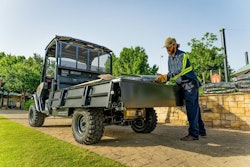RUST NO MORE
Tips to prevent road salt from ruining your ride
By Bruce W. Smith
Winter brings a lot of beauty to the landscape. But it also brings with it a cause for concern to owners of new vehicles: rust. Rust is the cancer of cars. Once it starts, it’s difficult and expensive to stop. T he good news is you can prevent the onslaught of rust in your new car, truck, or SUV by taking a few preventative measures.
 WD-40 No-Rust Shield kit
WD-40 No-Rust Shield kit
The number one rust-inducers is salt, and salt is as prevalent in winter as snow. That’s because clearing winter roads to the bare pavement usually requires de-icing chemicals.
Those de-icing methods typically involve the use of salt (sodium chloride), which usually comes from mined rock salt that has been crushed, screened, and treated with an anti-caking agent.
The other de-icing agent is calcium chloride, which comes from natural brines. Both are serious rust makers.
When your vehicle I exposed to either form of chloride, the chances of corrosion is greatly accelerated. This is especially true when existing corrosion (like that found in small dents and dings left exposed to the elements) gets exposed to even relatively small amounts of chloride.
A good way to keep salt exposure—and the formation of rust—at bay is to employ these steps recommended by the leading experts in automotive rust prevention:
- To prevent winter damage, it is recommended that you wash your vehicle every 10 days. Wash your vehicle whenever the temperature is 40 degrees F. and above. Do it during the day so that it dries completely before freezing evening temperatures begin.
- Spray door locks liberally with WD-40 before parking it to prevent locks from freezing.
- Always wash your car right after a snow or rain shower. Rain and snow collect pollutants in the air and drop them as acid rain which can damage the cars protective finish. Snow and sleet also include the corrosive road salt.A good product to use is Everbrite’s ProtectaClear.
- Wash the underside of your car often during the winter months in car washes that do not use recycled water.
- Avoid driving through large puddles of standing water on salted roads because the puddles are filled with saturated road salt.
- Any paint chips that are larger than the tip of a pen should be repaired immediately because they are open for rust to begin
- Use foot brushes and floor mats that can be cleaned easily because the salt water will rot out floorboards. A good scrubbing is necessary because soapy water alone will not remove all of the chemicals.
- “If you buy a vehicle and plan to keep it for more than four years, consider taking it to a reliable rust control business to be sprayed every year,” suggests Freeman Young, president of Krown Rust Control Systems, a Canadian company well-known for their vehicle treatment. “And check to make sure that the process is environmentally safe and the technicians are properly trained.”
- An annual rust control treatment for an average car costs about $100 and doesn’t void your manufacturer’s warranty.







